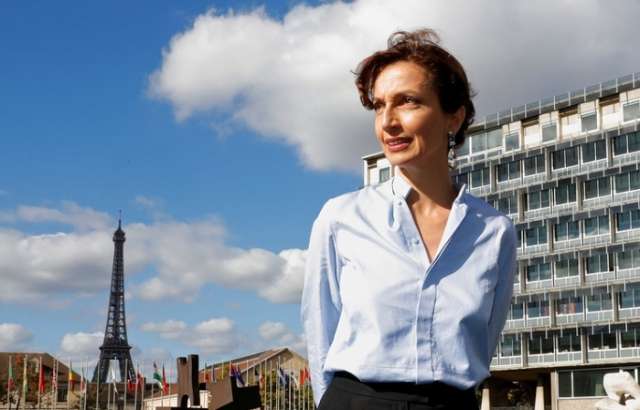At the outset, Azoulay’s campaign for director general seemed ambitious, to say the least. But the past week’s events boosted her prospects. On Thursday, she finished second – along with the Egyptian candidate Mouchira Khattabi – in the fourth round of voting for UNESCO’s next Secretary General.
Azoulay and Mouchira Khattabi got 18 votes each, behind Qatar’s Hamad bin Abdulaziz Al-Kawari, who won 22 votes.
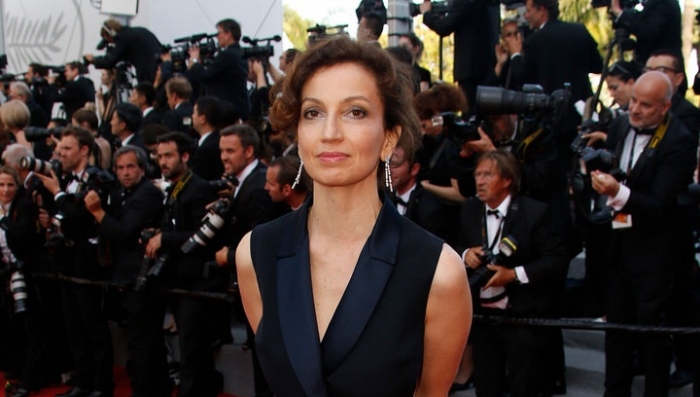
The former French culture minister has come far. She threw her hat into the ring for UNESCO’s top job just before the deadline on March 15. At that point, she was still serving as Hollande’s culture minister and was only able to give the campaign her undivided attention after Françoise Nyessen succeeded her in May, when Emmanuel Macron took over at the Élysée Palace.
“She threw herself into the campaign without any resources at her disposal – she got things going really quickly – but it’s become a big deal. And, with more and more supporters, we started to think we’ve got a real shot at winning,” one of her advisers said on the French radio station Europe 1.
‘We started to think we’ve got a real shot at winning’
“Everything’s possible,” Azoulay herself said. “Eight years ago, no one had seen Irina Bokova [the current UNESCO president] coming.”
Azoulay wants to take UNESCO back to its original purpose of protecting “the world heritage of humanity.”
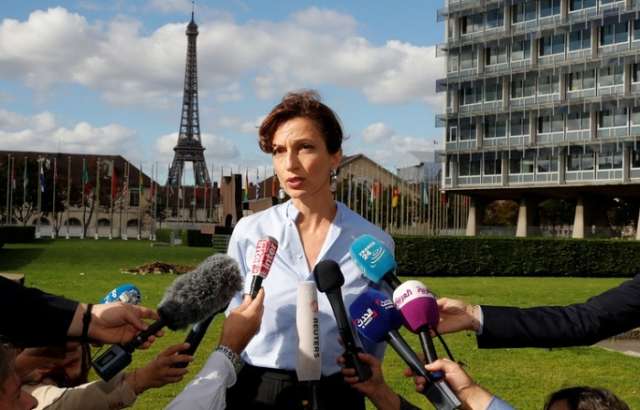
She talks about her multicultural family history as something that would boost her ability to form a consensus at UNESCO. Indeed, her family could be described as living embodiments of the ties that bind the two shores of the Mediterranean. Her grandmother was a Sephardic Jew – while her father is an adviser to the King of Morocco and her mother and aunt are French writers. Azoulay’s parents have always divided their time between Rabat and Paris, where she was born in 1972.
After graduating from the University of Paris-Dauphine with a master's degree in management sciences and getting an MBA from the UK’s Lancaster University, she studied at Sciences Po, then went on to the Ecole Nationale d'Administration (ENA), a common alma mater of French politicians.
As soon as Azoulay left the ENA, she had already made the decision to work in culture. From April 2000 to July 2003, she was deputy head – then head – of the organisation running France’s public TV channels. After a brief spell at the budget office of the Île-de-France region, where Paris is located, Azoulay joined France’s National Cinema Centre (CNC). She stayed at this public institution for nine years, working as deputy director of audiovisual operations, financial director, then deputy director general, the company’s number two spot.
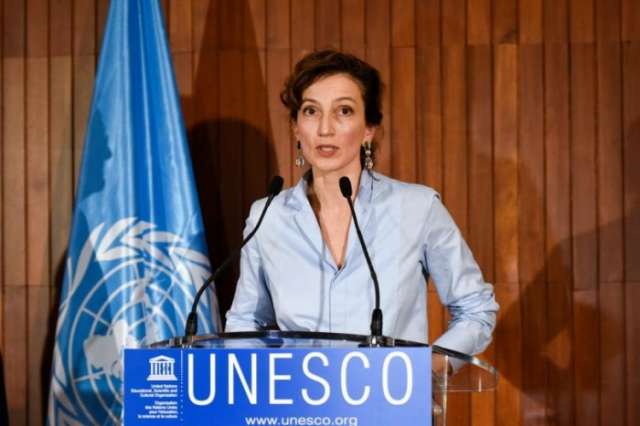
Azoulay’s time at the CNC made a big impression on her. “The thing that made me, professionally, was the cinema – the CNC, the back office, the cogs in the wheels of the industry. She has constantly sought to defend France’s unique culture from the American juggernaut. Indeed, Azoulay is keen to focus on that experience to bolster her candidacy to lead UNESCO, as an institution tasked with protecting “the world heritage of humanity.”
In 2014, Azoulay met François Hollande when he was on a presidential trip to Mexico. The then president was impressed by what he saw as Azoulay’s competence and energy. “She's a good girl – we’ve got to find a job for her,” Hollande said after meeting her, according to the French weekly L’Express. Five months later, he made Azoulay one of his advisers, focusing on culture and communication. She assisted him in dealing with some of the big issues of the day in the cultural field – such as the reform of the system of public assistance for people working in arts and entertainment, as well as changes to France’s “Hadopi” laws against piracy of entertainment products. A keen cinephile, Azoulay took charge of the film screenings Hollande held in the Élysée Palace on Sunday evenings.
Hollande was said to like the light-heartedness and humour that Azoulay brought to the Elysee Palace, where staff are said to be dour technocrats. L’Obs, the French weekly magazine, put her on the cover in 2015, as exemplifying the "the president’s young praetorian guard".
It was not long before a big job came up. Azoulay was made minister for culture and communication in February 2016. She was surprised to get the job, replacing Fleur Pellerin, a fellow ENA alumna. At this point, there was not even a Wikipedia page about Azoulet; nor did she have a Twitter account. This seemed heretical at a time when constant PR activity is at the heart of politics. Azoulay sorted out her “mistake”, so to speak, and today she – or her communication team – tweets often on her projects for UNESCO.
Azoulay was given the job for just the last year of Hollande’s presidential term. Consequently, her work was overshadowed by the looming presidential election. Her main task was ensuring a successful follow-through for policies that her predecessors – Aurelie Filipetti and Fleur Pellerin - enacted. Her only immediate task on getting the job was to sign the agreement on public assistance for workers in the entertainment industry.
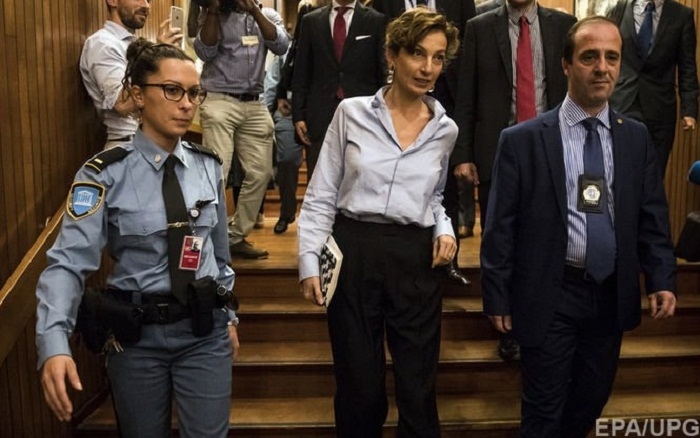
‘It’s UNESCO’s turn’
During the presidential election campaign, there was hunger for change in France, but Azoulay remained a faithful Hollande supporter until the end of his tenure, even if it was just to stay on board with the Socialist Party. According to “Le Monde”, she was keen to become a Socialist candidate in a Paris constituency in this year’s legislative elections. But Anne Hidalgo – the Mayor of Paris and the local party baron – opposed Azoulay’s wish.
However, Hollande had another idea in mind to keep his protégé’s career going. He was the one who encouraged her to go for the job of UNESCO secretary general, despite the unwritten rule saying that the country in which an international organisation is based cannot put a candidate up for its top job. Indeed, Azoulay’s nomination provoked an outcry. In the Arab world, some regarded it as an “insult to Arab countries” which wanted to “see this post given back to one of their own,” after a 40 years break. France’s foreign minister Jean-Yves Le Drian received a petition from 50 Arab intellectuals protesting against this “provocation”. This outcry also took an altogether more sinister form: Audrey Azoulay is Jewish, and violent anti-Semitic language has been used against her on social media.
“It’s not the Arab world’s turn. It’s not France’s turn. It’s UNESCO’s turn: this is a pivotal moment for the agency, and it’s got to enter the 21st century,” Azoulay told the news magazine Jeune Afrique. “I really want this job because UNESCO supports universal, humane values. UNESCO is about understanding other people across cultural boundaries.”
More about: #UNESCO








